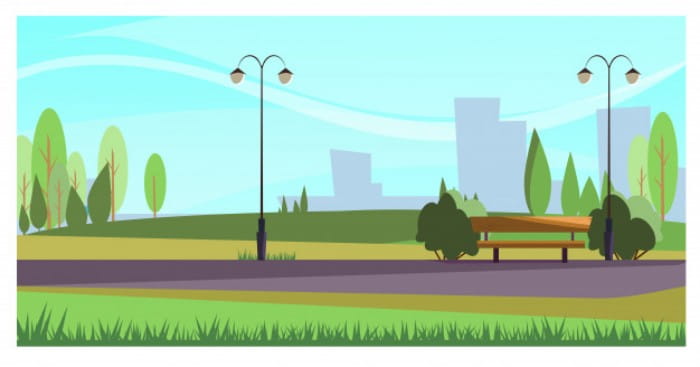
Landscape design has become extremely enticing to homeowners all across the world. People like DIY projects, even if they fail even to come close to professionals. However, a little education will work wonders. Simply put, landscape design is often seen as a detailed picture explaining the location of every single stone, tree, flower, shrub, and piece of furniture. Planning is mandatory, or your garden will look like a random collection of items. Not only it looks chaotic but failing to respect the demands of your plants will lead to failure – expensive treatments, dead plants and inconvenient paths.
Here are a few strategies to boost your planning design. While they can be helpful, remember that each item has specific needs that must be addressed.
Focus on Focal Points
And not just in the beginning, but throughout the whole plan! A focal point is a thing that draws most of the attention. It makes people look and admire. It might have different effects. Some people feel engaged, while others experience admiration. Regarding landscape character assessment, most homeowners choose trees or statues as focal elements. Your options are countless though. The key to success is finding an element that stands out by being different. If you have 20 trees in your garden, one of them will never make a good focal point.
Do know the difference between standing out and sticking out. You want these points to stand out, but not stick out. In other words, they’re special, but they should also be connected to the overall landscape. Any connection works – colors or shapes, for example.
Take It Easy with Curves
Curves make a garden more interesting and worth a Smartphone wallpaper. Don’t overreact though or you’ll make it look like kitsch. Curves are efficient when they don’t stand out, so opt for long and subtle choices. For example, a couple of round flower beds will ruin everything. A snaky path that takes you too far will also kill the design. Subtle curves, on the other hand, put the curvy effect into a viewer’s mind, but without making it obvious.
Do limit the geometry around your garden too. Don’t organize an amalgam of shapes because none of them will be attractive. If you like curved lines, make sure you repeat them everywhere. At this point, a straight or square design will become the focal point.
Accent the Biggest Thing – Your House
When doing a landscape character assessment, your house is usually the central point. It’s the biggest thing, so don’t overlook it. Unless it’s an actual masterpiece that doesn’t need any improvements at all, it can certainly take advantage of a few extra elements. For example, you can soften its edges or maybe add some decorations to help it blend into the décor. There’s a thin line between being successful and creating kitsch though, so don’t overdo it.
Some houses are covered in shrubbery. Some others have so many decorative elements that they look like Christmas trees. You don’t want that. Find the most attractive architectural feature and focus on it. Every house – no matter how boring it is – will have a special feature.
Forget about Formal Landscape Designs
Formal designs are all about maintaining a perfect geometry – perfectly even round beds, symmetrical squares and so on. It’s challenging, but also attractive. When you imagine formal landscapes, you inevitably think about those pictures promoting English gardens belonging to lords and barons. Symmetry looks good, but it’s a nightmare to maintain. Even if you don’t work and maintaining your garden is the only thing you do, you’ll still face some stress. For example, if you have two identical flower beds and one of them dies, your options will be quite expensive. You won’t be able to replace it with an identical one. You’ll want to maintain symmetry, so you’ll have to replace both of them.
This is nothing. Imagine completing tree surveys, investing in nice trees and shrubs, then having a couple of them affected by a plague. Not only your expenses will skyrocket, but the frustration is just not worth it. Formal landscape designs are good for those who can afford to hire professional teams for maintenance, as well as regular expenses whenever unexpected situations occur.
In conclusion, a smart landscape design covers multiple factors – education, homework, attention to small details and a sense of design. It takes time to create something valuable and good looking, but the result is definitely worth your money.
Land vision are Landscape Architects and Landscape Consultants. As a multi-disciplinary environmental and landscape planning consultancy Land vision South East Limited provide specialist landscape consultant input into projects such as Landscape Visual Impact Assessments , landscape design and ecology consultancy for developers. We provide Landscape Architecture, arboriculture and landscape planning input, into across a wide range of development schemes. We also provide landscape design-landscape management-ecology-tree surveys-tree reports. Our landscapes reports can cover are landscape character assessments. We also draw up Management Plans for ancient woodland, unimproved grassland and Biodiversity Offsetting projects for developments.
